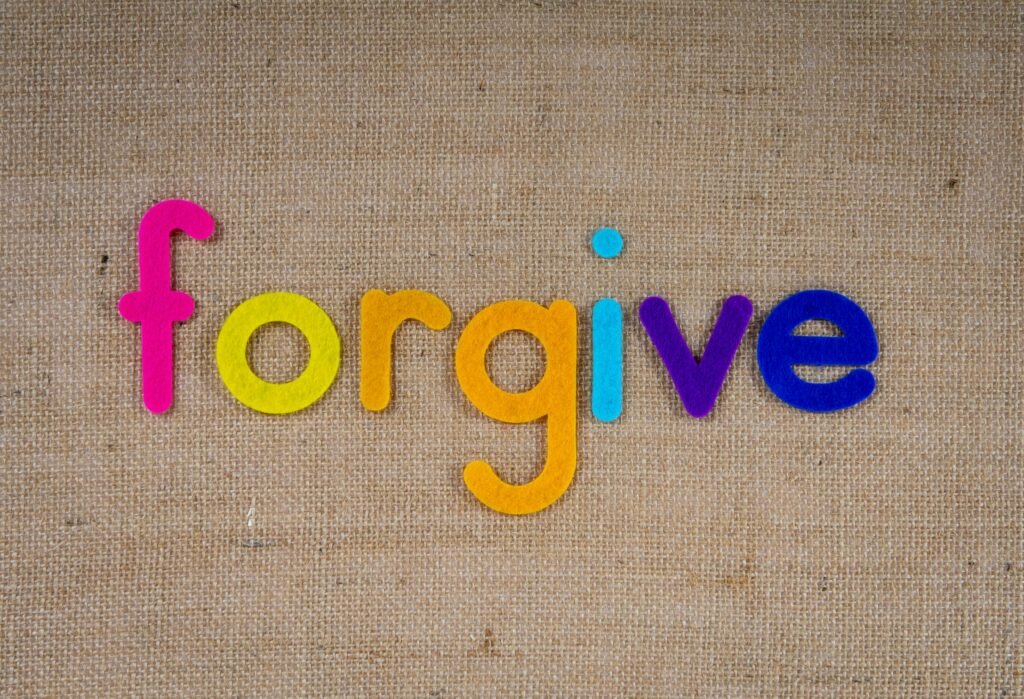In this blog post, we will talk about importance of forgiveness in relationships, its benefits for personal well-being, the challenges in forgiving others, and steps towards inner peace.
We will also discuss often-neglected self-forgiveness, which is a very important step towards healing from your own mistakes.
Importance of Forgiveness: Let Go and Move On For a Lighter You
Life is a beautiful mess, filled with ups and downs, twists and turns.
We stumble, we fall, and we make mistakes.
Sometimes, our mistakes hurt not only ourselves but also those we care about the most. In these moments, forgiveness becomes essential.
It’s a strong tool for handling the complex human emotions and relationships.
Forgiveness is not about condoning the action, but rather about releasing the negativity and choosing to move forward.
Resentment weighs us down, but forgiveness sets us free.
As the Buddha said, “Holding onto anger is like drinking poison and expecting the other person to die.”
Why Forgive? The Benefits of Letting Go
Reduced Stress and Anxiety:
Resentment is a heavy burden to carry.
It may feel satisfying in the moment, but ultimately it harms you more than anyone else.
Forgiveness allows you to release that burden and experience a sense of lightness and peace.
Improved Relationships:
Forgiveness can mend broken bridges and make way for stronger, healthier relationships.
Imagine reconciling and reuniting with a loved one after a long time; the happiness of that reunion is reason enough to forgive.
Increased Self-Esteem:
Letting go of negativity allows you to focus on your own growth and well-being.
Forgiveness takes back that power and empowers you to move forward with confidence.
Improved Physical Health:
Studies have shown that anger and resentment can have negative health consequences.
Forgiveness, on the other hand, can contribute to lower blood pressure, improved sleep, and a stronger immune system.
The Challenges of Forgiveness: It’s Not Always Easy
Forgiving someone, especially for something major, can feel incredibly difficult.
Here are some common challenges :
Fear of being taken advantage of again:
This is a valid concern.
Forgiveness doesn’t mean blind trust.
You can forgive someone while also taking steps to protect yourself from future harm.
Anger and resentment:
These feelings are natural, but holding onto them hinders healing.
Acknowledge your emotions, but don’t let them control you.
A belief that forgiveness condones the action:
Forgiveness doesn’t mean accepting the behavior.
It’s about letting go of negativity and deciding to move forward.
Remember
Forgiveness is a journey, not a destination.
There will be setbacks, moments of doubt, and days when anger resurfaces.
Be patient with yourself and keep moving forward.

RELATED: POWER OF EMOTIONAL INTELLIGENCE IN RELATIONSHIPS
Steps to Forgiveness: A Path to Healing
So, how do you actually forgive someone?
1. Acknowledge Your Pain:
First, recognize the hurt you feel.
Don’t minimize or ignore your emotions.
Holding them in will only delay the healing process.
2. Understand the “Why”:
While not an excuse, trying to understand the reasons behind the other person’s actions can sometimes help with empathy and compassion.
This doesn’t mean justifying their behavior, but rather seeing things from a different perspective.
3. Decide to Forgive:
This is a conscious choice you make for yourself.
Forgiveness isn’t about the other person; it’s about your own well-being.
4. Communicate Your Forgiveness (Optional):
In some cases, letting the other person know you’ve forgiven them can be helpful for closure.
5. Practice Self-Care:
Forgiving yourself and others takes time and effort.
Be patient with yourself and involve yourself in activities that promote relaxation and self-compassion.
Example:
Imagine you and your friend have a misunderstanding because both of you are assuming scenarios in your minds.
Your friend might be interpreting your actions in a way that wasn’t intended, leading to confusion and tension between you.
Instead of jumping to conclusions, it’s important to acknowledge the misunderstanding (“I think there’s been some confusion between us, and I want to clear it up”).
Take the time to understand each other’s perspectives and clarify any misinterpretations.
Choose to forgive any unintentional miscommunication and express your desire to move forward positively (“I value our friendship and want to clear up any misunderstandings between us”).
Remember, adopting silence as a way to avoid confrontation only brings more confusion and distance between friends.
It’s crucial to engage in open and honest communication to prevent similar situations from happening in the future, ensuring a stronger and more trusting relationship.
You may also read: FRIENDSHIP BREAKUP AND HOW TO GET OVER IT

RELATED POST: STOP NEGATIVE SELF TALK
The Neglected Art of Self-Forgiveness
Forgiving others is a powerful act, but it’s only half the story.
Often neglected, self-forgiveness is equally important for healing and moving on from mistakes.
We all make them – big or small.
We say things we regret, make poor decisions, or fall short of our own expectations.
But focusing too much on these errors can make us feel bad about ourselves and stop us from growing.
Here’s why self-forgiveness matters:
Reduced Shame and Guilt:
Keeping feelings of guilt and shame can stop us from moving forward.
Self-forgiveness allows you to release these negative emotions and move forward with a lighter heart.
Increased Self-Compassion:
Treat yourself with the same kindness and understanding you would offer a friend in the same situation.
Being kind to yourself helps you bounce back and grow from mistakes without being too hard on yourself.
Improved Mental Health:
Continuous self-criticism can lead to anxiety and depression.
Forgiving yourself brings peace and helps you think positively about yourself.
Openness to Growth:
When you forgive yourself for past mistakes, you’re more open to learning from them and making positive changes in your life.
As Nelson Mandela wisely said, "Our greatest glory is not in never falling, but in rising every time we fall."
Here are some steps to guide you on your journey towards self-forgiveness:
1. Acknowledge Your Mistakes:
The first step is to honestly acknowledge your misstep. What happened? What role did you play? Owning your mistakes is essential for growth.
2. Make Amends:
If you’ve hurt someone, take responsibility and try to make amends. A sincere apology can go a long way in healing the situation.
3. Learn from the Experience:
Reflect on what went wrong and how you can avoid similar situations in the future.
Mistakes are opportunities for growth, not reasons for self-punishment.
4. Forgive Yourself:
Make a conscious decision to let go of the guilt and negativity associated with your mistake.
5. Practice Self-Compassion:
Treat yourself with kindness and understanding.
Remind yourself that everyone makes mistakes, and that you are worthy of forgiveness.
Imagine a misunderstanding arises between you and your partner because of a miscommunication.
Acknowledge the confusion, apologize sincerely for any part you played in it, and take steps to clarify the situation by having an open and honest conversation.
Then, forgive yourself for any unintentional harm caused by the misunderstanding.
Remember, everyone experiences miscommunications from time to time, even in the closest relationships.
Focus on learning from the experience and moving forward with a positive attitude.
As Ralph Waldo Emerson said, “Forgiveness is the final act of Love”
Remember:
Forgiveness is a Process
There will be setbacks and tough days, but stay patient with yourself.
Keep moving forward on your path to healing and peace within.
Here are some additional tips:
Seek Support: Talking to a family member or trusted friend can be helpful in processing difficult emotions and developing healthy coping mechanisms.
Practice Gratitude: Focusing on the things you’re grateful for can shift your perspective and promote feelings of positivity and well-being.
Practice Mindfulness: Mindfulness exercises like meditation can help you become more aware of your thoughts and feelings, allowing you to manage them in a healthy way.
By forgiving others and yourself, you invite a lighter, more peaceful life.
Let go of negativity and welcome the freedom and growth forgiveness brings.
ALSO READ: IMPORTANCE OF COMMUNICATION IN FRIENDSHIPS


When friends share posts, they are telling Google that the site is worth sharing with
others, and that helps build my small blog business.
Thank you for sharing !!


What a beautiful blog on forgiveness with clear steps to forgive others and even ourselves. Thanks for sharing!
Looking back on some fights I had with my wife, they were stupid and could have been avoided if my ego wasn’t involved. Communication is key and just a little forgiveness can make all the difference!
Yes, i very strongly believe that open and honest communication is the key to a healthy relationship. Thanks for reading my post.
Great guide to the Importance Of Forgiveness In Relationships and How to Self Forgive! Self forgiveness is my favorite part of this post. Thank you for all the ideas and ways to make those ideas successful!
Thanks..yes ..self forgiveness is the most important thing.. glad you like it.
Great post! Forgiveness is so important in any relationship. Thanks for sharing!
Hey thanks for reading and appreciating..!
Thank you for addressing such an important topic! Understanding the significance of forgiveness in relationships and its profound impact on personal well-being is crucial for fostering healthier connections and achieving inner peace. Your insights provide valuable guidance for navigating the challenges of forgiveness and moving towards a more fulfilling life.
Thanks a lot for reading and appreciating.
Wow I love the way this was all laid out. You added so many important details and wrote them in a beautiful way. Thank you for sharing!
And Thank you for reading and liking it!
I did a post on this! Great article!
That’s wonderful.. would love to read it..!
Great read! Thanks for sharing all the info.
Thanks for reading!